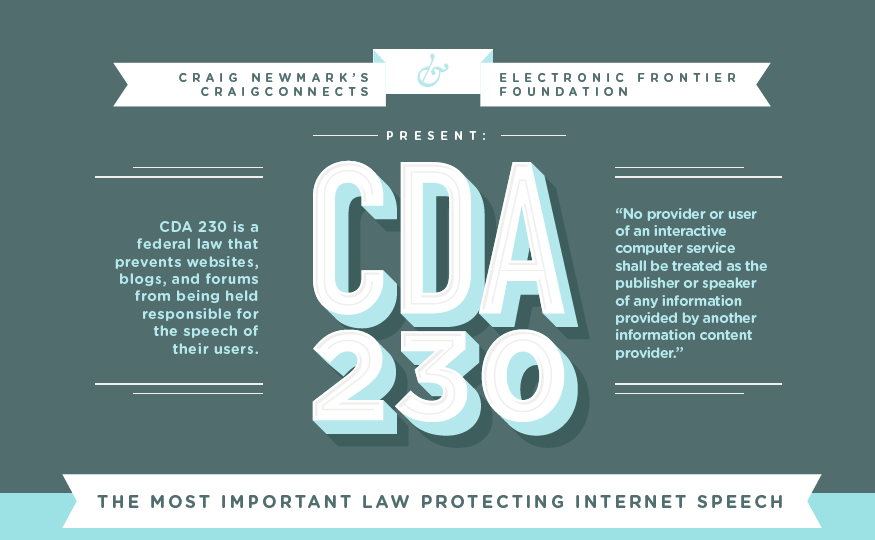Section 230: A protection of free speech or enabler of big tech censorship?
January 20, 2021
Despite being passed in 1996, Section 230 of the Communications Decency Act continues to raise controversy and traverse party lines. The law has most recently sparked outrage due to the social media censorship of former-president Donald Trump. While many Republican officials are publicly criticizing Section 230 for giving Big Tech too much power, the law still may not be safe under the upcoming Biden administration.
A provision of the Communications Decency Act, Section 230 was passed to protect internet services from lawsuits against what their users post. The law states, “No provider or user of an interactive computer service shall be treated as the publisher or speaker of any information provided by another information content provider.” Essentially, internet companies spanning from social networks like Twitter or Facebook to websites such as Google can not be held liable for illegal or harmful content posted on their websites.
Many critics of Section 230 accuse the law of growing social media’s influence by giving the sites’ immunity from legal responsibility. The Atlantic writer Steve Randy Waldman states, “Services such as Facebook, Twitter, and YouTube are not mere distributors. They make choices that shape what we see.” The law gives internet services protection from neglecting to combat hate speech, as well as from censoring partisan views.
During his time in office, President Donald Trump has been an outspoken critic of the policy, creating an executive order targeting Section 230 in May 2020. The order attempts to limit the protections given to internet services, stating that “online platforms are engaging in selective censorship that is harming our national discourse.”
In December, Trump took further action, vetoing the National Defense Authorization Act because of its “failure to terminate the very dangerous national security risk of Section 230,” according to a statement from the president.
Following the ban of Donald Trump from various internet platforms, including Twitter and Facebook, many additional Republican officials have criticized Big Tech-major information technology companies-and their unregulated influence. “Big Tech’s PURGE, censorship & abuse of power is absurd & profoundly dangerous,” tweeted Texas Senator Ted Cruz. While Lindsey Graham, a senator from South Carolina posted, “I’m more determined than ever to strip Section 230 protections from Big Tech (Twitter) that let them be immune from lawsuits.”
While Republican senators have recently vocalized frustration towards Section 230, the law faces an uncertain future under the Biden administration. When discussing Mark Zuckerberg and Facebook in an interview with The New York Times, the newly inaugurated president stated, “The idea that it’s a tech company is that Section 230 should be revoked, immediately should be revoked, number one. For Zuckerberg and other platforms.” House Speaker Nancy Pelosi has also expressed the possibility of repealing the law, while Senator Amy Klobuchar has discussed the need for more accountability.
Reform of Section 230 remains a possibility after the inauguration of Joe Biden. With a Democratic-controlled Congress, only time will tell what the future holds for the controversial protection of Big Tech companies.


